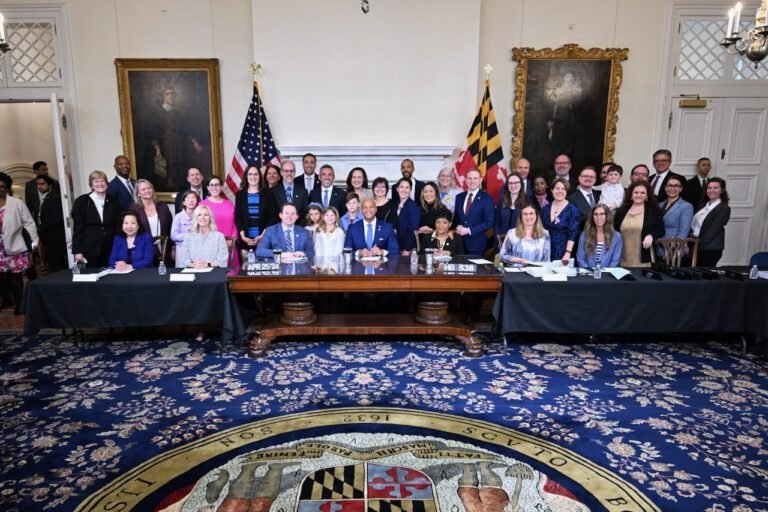Press Release: April 25, 2024
ANNAPOLIS, MD – Governor Wes Moore today presided over the second bill signing ceremony of 2024, signing three housing bills dedicated to making Maryland more affordable. The bills, part of the Moore-Miller Administration’s 2024 legislative agenda, address concentrated poverty in Maryland’s marginalized communities, reduce instability in Maryland’s housing supply and affordability, and enhance rights for Maryland renters.
“We made the choice to put housing front-and-center this year because we know this issue can’t wait. Building a stronger housing market can’t wait. Tackling a housing shortage of 96,000 units in Maryland can’t wait,” said Gov. Moore. “We introduced the most comprehensive housing package of any Maryland administration in recent history – and we were unapologetic about it.”
The Housing Expansion and Affordability Act directly addresses Maryland’s housing supply and affordability crisis to lower costs and expand economic opportunity for Marylanders across the state. The bill incentivizes the construction of new housing by removing barriers to development that have contributed to the current supply shortage. The bill will also modernize land use law and expedite and simplify approval for transit-oriented development, development on former state-owned complexes, and housing development by 501(c)(3) organizations.
The Housing and Community Development Financing Act strengthens the state’s financing tools for tackling vacant houses and creates the Maryland Community Investment Corporation to unlock tens of millions in federal funding for investments in projects and businesses in low-income communities across the state.
The Renters’ Rights and Stabilization Act protects Maryland renters who are experiencing housing instability. This bill establishes the Office of Tenant and Landlord Affairs to provide renters with information about their rights, creates the Maryland Tenants Bill of Rights, increases the eviction filing fee to address the high eviction filing rate across the county, saves renters money by reducing required security deposits and creates new pathways to homeownership by providing tenants the opportunity to purchase their homes.

